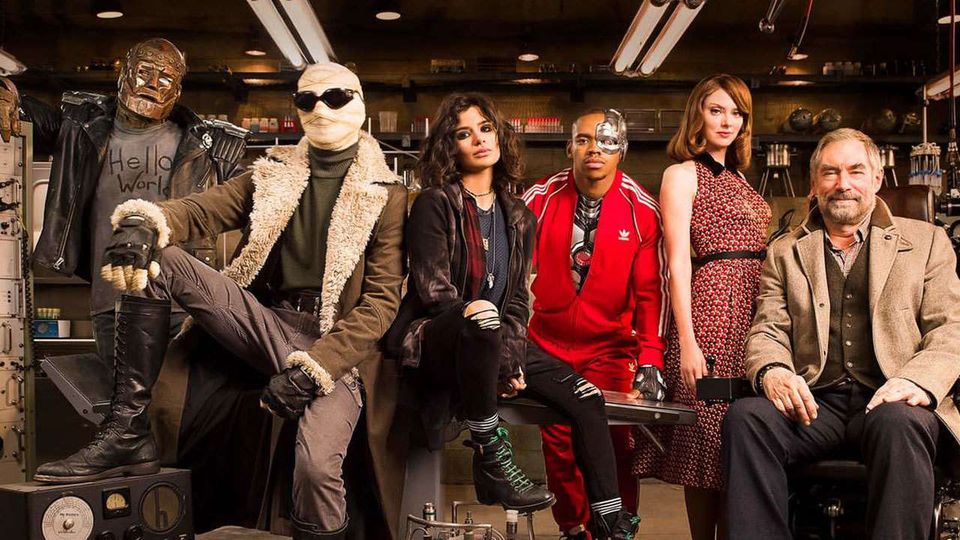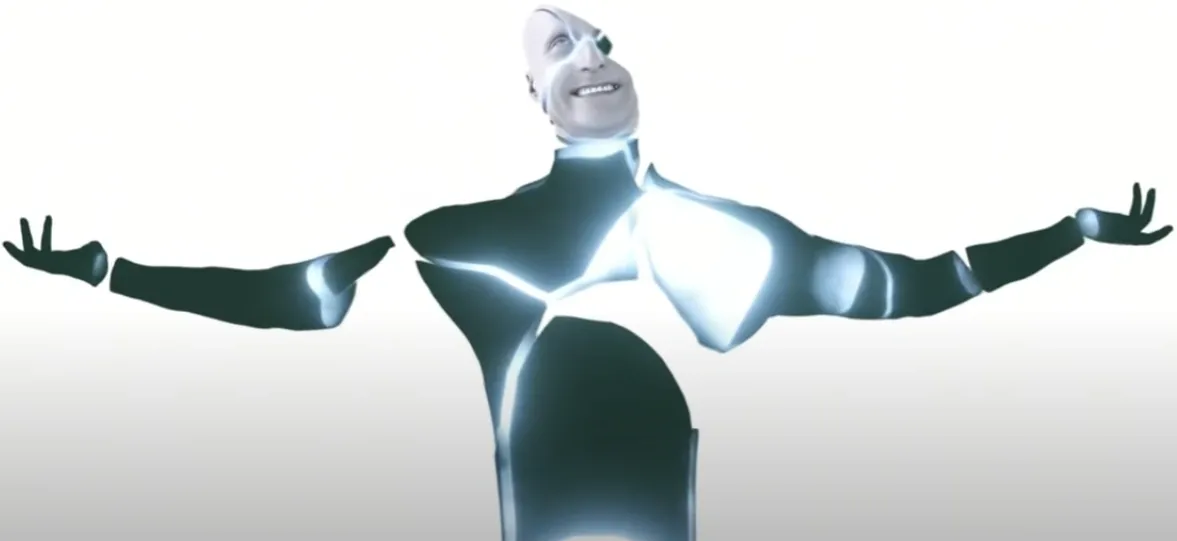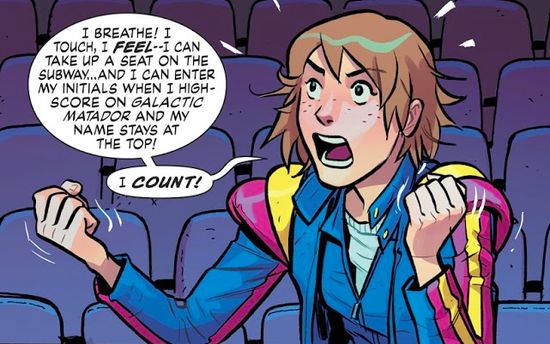I Watched Every Episode Of Doom Patrol!

What a goofy, goofy place we are in the history of the superhero. If you remember any part of the 20th century firsthand, intimations that the commercial clout of the genre is fading only serve to affirm how massive it became. People are legitimately surprised what a critical and commercial disappointment the third Ant-Man movie was, apparently desensitized to the fact that there was a third Ant-Man movie. The trades publish articles about Marvel’s aimless mission creep fifteen years after 2008’s Iron Man, noting the company weakened its brand with too much product. But with the arguable exception of other Disney brands, has Hollywood ever had an ongoing mission left to creep from 15 years after an initial blockbuster? Superman went wacky with Richard Pryor five years and two movies after his groundbreaking debut. A prominently nippled Batman was iced to meet Ahnuld less than a decade after his game-changing dance with Jack Nicholson. And don’t bring up any Part III in the horror genre. Sure, there’s James Bond and his lessers, like Ethan Hunt, John McClane, and Dom Toretto, but were they pumping out two to three blockbusters a year for over a decade? Marvel could shit the box office bed from now until the socialist revolution, and they’ve still got their place made in the Hollywood history books. Despite their relative clumsiness, Warner Bros and DC have had their share of Not-The-Onion super-victories as well. Drama on the set of Aquaman 2 can only exist if you made a successful Aquaman movie. And it's in this context of laser-blast abundance that a Doom Patrol TV show lasted long enough to not just have a script, but lose it.

If you know me at all socially, or even just on social media, you’ve heard me sigh in awe and gratitude that my favorite quirky comic book from early adolescence was adapted with tremendous love for the source material, though not beholden to it. The Doom Patrol was a '60s DC Comics superhero team mostly remembered for their atypical tragedy: Cliff Steele was a brain trapped in a super-strong but unfeeling robot body. Larry Trainor was left defenseless when his "Negative Man" spirit left his body to zap baddies. Rita Farr, once a glamorous actress, was ashamed of her freakish Elasti-Girl abilities. Within five years, the comic was canceled, the Doom Patrol sacrificing their lives to save a small town. Every so often the brand would be revived to little fanfare, until Grant Morrison's perverse take on the team appeared in 1989, eventually becoming part of the "mature readers" trend alongside Swamp Thing, The Sandman and Hellblazer. The Doom Patrol was always a dark mirror of The X-Men (and quite likely an inspiration, the team arriving with a wheelchair-bound mentor a few months earlier), its heroes neurotic victims of disfiguring accidents rather than mutants learning to enjoy their natural gifts. But Morrison heightened the angst and set it against a bizarre world of psychedelic chaos and government conspiracy. Though it turned out several of the original members had survived, it was debatable whether the experience made them stronger.
The initial seasons of Doom Patrol, found on Max, featured the eccentric iconography of Grant Morrison’s work while adding a modern perspective on how a team of traumatized, super-differently abled outcasts would engage with society and themselves. Not only did they incorporate Rita Farr into the narrative as if she wasn’t killed off more than twenty years before Morrison’s run, they also included Vic Stone a.k.a. Cyborg, a character who not only had nothing to do with the comic, but already had been part of two more popular teams in comics and screen media. The end result was a touching, novel and hilarious show that would surprise even the most informed fan.

Ignoring Morrison's transformation of Negative Man into Rebis, the writers and Matt Bomer instead made Larry Trainor a romantic figure with unprecedented depth, Bomer’s voice providing emotion and tenderness despite the regular lack of a visible face. While there was more material to work with for Cliff Steele, good luck reading the comic now and not hearing Brendan Fraser’s voice, as boisterously animated and emotive as Steele’s robot face isn’t. Timothy Dalton’s Niles Caulder was not just disturbingly self-possessed, but unabashedly paternal. Diane Guerrero kept Crazy Jane, a woman with a power for each of her multiple personalities, from ever being merely a chance to showboat range. April Bowby and Joivan Wade did such charismatic work respectively as Farr and Stone that you’d never guess the characters had nothing to do with the main source material. Fans of the comic may have missed the relative lack of horror, but fans of the TV show would find plenty to miss in the comic.
Season two survived the loss of Alan Tudyk’s fourth-wall-breaking big-bad Mr. Nobody by effectively utilizing the terror of the Candlemaker, the most nightmarish character from Morrison’s work. That season, and the Candlemaker arc, was cut off abruptly by COVID lockdown, but as season three investigated Rita Farr’s complex relationship with the Sisterhood Of Dada, I didn’t even notice the reported budget cuts (might help that one member of the Sisterhood was literally named The Fog). I don’t know if the budget got cut even more on Season 4, or if everyone assumed producer Greg Berlanti’s time with DC properties was coming to an end (despite all the cancelations, Berlanti's still at Warner Bros), but something knocked the wind out of the scripts big time.

I’ve gathered since childhood that an artlessly profane show is often a sign of a punchy, indifferent writers room (I think it was during an episode of Just The Ten Of Us when it hit me), and this year it seemed like we were supposed to applaud every time a scene on Doom Patrol ended with the word “fuck.” Which happened a lot. As did sequences where the actors were told to be entertainingly sassy or drunk with minimal assistance from the story or dialogue. There were subplots involving new, thin characters and old, rehashed problems, too. The Beard Hunter, a kinky, inspired extension of a Grant Morrison one-off joke, returned as…The Butt Hunter, regrettably crossing that fine line between stupid and clever. There was even one of those “everybody’s singing but can’t figure out why” episodes, now a hipster TV cliche more than 20 years after Buffy did it.
But if I had to choose a “Jump The Shark” episode - the moment when the show became completely untethered from its initial selling point - it would have to be S4 Ep4, which featured none of the primary cast, instead focusing on supporting characters living on sentient, genderqueer Danny The Street (reduced from a colorful commercial district to a nondescript campsite with people waving streamers). Or rather, we got to watch those supporting characters listen to the storyline of a space adventure comic book, weirdly subvert a major plot point from Season 2, and finally, sing a Wilco deep cut by a campfire. Initial recaps assumed this interlude would be revealed as important once the season progressed. In fact, the focus of the story, Dorothy Spinner, is only mentioned in the series finale, and her creation Casey Brinke wound up offering nothing but an underwritten love interest for Jane.

Assuming you made it through the season, you may have been more bothered that the penultimate episode had the exact same plot as Avengers: Endgame, with everyone going back in time to score a MacGuffin and accidentally face personal demons. After an action climax of butt monsters singing an original showtune (sigh), the finale seemed almost pointedly divorced from everything the Doom Patrol was on paper, instead focusing solely on the elements introduced in the series: terrific actors, a 21st century POV on trauma and LGBTQ+ issues, and lots of hugs preceded by self-aware discussion of who the characters are and why they should or shouldn’t be around each other. This stuff can be great in context - April Bowby better get a good gig after this - but it's fairly common on streaming television in 2023. It’s as if the writers went from being inspired by the comic to finding it a burden, Doom Patrol’s brand of macabre unpredictability getting in the way of their desire to write This Is Us.
Again, I don’t know exactly why this happened. I couldn’t find an obvious departure from the creative team in the credits, and talk of a budget squeeze online came around season 3. Though considering the closing image of the series was a late-addition character stepping into a barren hallway with a flamethrower (spoiler!), I’m inclined to assume budget woes played a big role anyway. With the neat ending of season 3, promising further adventures but resolving most of the story threads, maybe there was a lack of ideas (and dollars) to dignify a late-approved fourth season without the likelihood of a fifth.

Though my bafflement with this season isn’t entirely exorcised (considering their love of LGBTQ soap opera, why didn’t they incorporate Coagula?), I can already tell that it won’t be too long before I revisit the first three seasons. Until they didn’t, the creators did an exceptional job of opening and modernizing a story that entranced me as a kid with its surreal, sometimes harrowing mysteries, and resonated as a portrait of haunted weirdos trying to get over their pain and do right by each other. I could even buy the first three seasons on DVD if I don’t trust David Zaslav to keep them online! It’s hard for my inner xennial dollar bin comics dweeb to complain. Much. Even if adult me can’t believe they really went out with a flamethrower. On Doom Patrol! That was the best they could do? Ugh.